Workplace Happiness is derived from a sense of ownership and control and feeling positive about the environment in which you work.
If employee happiness is the objective, it is possible to create a sense of ownership and responsibility around a business in a range of ways. Individuals who feel they have more power over their working life, well-being and environment will take more responsibility for the success of their employer. The endgame should be a more engaged society that promotes greater happiness, collective endeavour and a fairer sharing of success.
*Engagement Survey results
Everyone in an organisation should enjoy the rewards of success. If you’re not earning a fair salary no amount of recognition for a job well done will be enough to make you forget you’re not being paid enough. Your pay scale has to meet expectations and encourage discretionary effort.
But to maximise employees performance and pay it is important to recognise you need the following three things from those managing:
Recognising an individual’s performance with a thank you, a note of congratulations or small gift of acknowledgement is also a powerful motivator. It says good work has been noticed throughout the year, not just at an annual appraisal. It strengthens bonds, builds trust and increases engagement.
Not sharing information makes employees feel an unimportant part of the business. Engagement and commitment can be eroded by this.
We all need to have a realistic and well-sourced view of the organisations where we work, regardless of whether we are the chief executive or work on the shop floor. The level of detail in which we receive it may be different, but information forms the basis of the decisions we make every day.
If you are a business that wants to get the best out of individuals on the team, openness is key. It is impossible to give people a greater say, or to demonstrate they have a share in the commercial success of your organisation, without equipping them with the full facts. You need to share with them as much knowledge as you are able, in order to give them the context for what you are trying to achieve.
This doesn’t mean a bunch of missives that come down from Head Office saying: this is our strategy. No, employees at all levels need a genuine overview of what is going on in their area and elsewhere. If employees understand the business, its strategy, how it is doing and who are the customers and competitors, they will make it stronger. Knowledge will unlock an influential role in important decisions. Individuals on the team will have valuable input on working methods and work together to coordinate their efforts.
None of this means that those at the top have less information or knowledge, simply that overall the business becomes flatter and information is spread throughout the organisation. It makes for effective decision-making and involvement at all levels. But it requires managers to behave differently: accept and welcome challenge, be collaborative and thoughtful, explain actions and embrace good ideas no matter where they come from.
The aim of any business must surely be to make their employees feel empowered and this means:
Our personal experiences inevitably bring us all to different solutions and ways of achieving them, but only by listening to all views can the best outcome be reached. Nobody is perfect but a team can be.
A practical framework of meetings, systems and support is needed to help employees:
Health and well-being can be broken down into three key areas:
By addressing all three, employers will improve engagement levels and productivity. Happy workplaces have lower levels of absence because people are engaged and engagement strengthens well-being.
At the heart of well-being are relationships based on mutual trust and respect that managers have with their team members, and individuals have with one another, so they are able to proactively and reactively spot and discuss any concerns they may have and get the timely help they need. Listening to employees and responding to their anxieties plays a crucial role too.
Attending to health and well-being creates a virtuous circle of benefits. Not only is there a strong correlation between pastoral care and employee engagement, the two are mutually reinforcing. Healthy employees are more committed, and committed employees are more healthy.
The focus here needs to be on the long term. Businesses that pursue a strategy of engagement in the short term, without thinking about well-being, won’t be able to sustain the strategy. There will be higher absence rates and a higher employee turnover, which will be ultimately self-defeating.
Employees who love what they do and feel proud of where they work will speak openly and positively about it to colleagues, potential employees, customers and people in their community. When people ask that inevitable, getting-to-know-you question of ‘where do you work’, you’ll hear the pleasure in their voice when they reply. Instilling such pride is not just about stirring speeches, sharing growth figures, or saying a few well-placed thank yous.
Instilling pride centres on having a purpose and helping everyone see that what they do each day is worthwhile. How your business interacts with the wider world is part of that. People want to work for an organisation that cares about how it impacts on society. If they feel they make a difference, it leaves them more fulfilled.
Community Social Responsibility plays a crucial role in employee engagement, with all the advantages of increased productivity, innovation and staff retention that goes with it. Plus it affords any company the opportunity to bring about a positive change on a mass scale. It doesn’t just make sense for the business and your employees, but also has the potential to significantly impact on the wider society and change people’s lives for the better.
CSR initiatives attract people and keep them engaged. They help create a positive working environment where people work hard because they want to, not because they have to. They are motivated by a sense of achievement and by doing something worthwhile. Being able to contribute to a cause while at work improves commitment to both the core job and to the company as a whole.
There are many elements to feeling satisfied at work, but time and again, two key reasons are cited:
We have nothing of greater value than our people. High levels of employee engagement is the key to unlock organisational success. Happy employees equal a high-performing, successful and long-lasting business. But what makes people tick on a personal level? In other words, what makes workers happy and satisfied at work? More importantly, what can business leaders, do about it?
Research shows that the two biggest drivers of satisfaction are:
A poor relationship with your manager is often cited as the number one reason for leaving an organisation, no matter how great the brand. Forget all the perks, incentives, reviews and motivational tactics: treating people with humanity is what really counts. Satisfaction is principally about what companies are doing at a personal level to make people’s lives better.
Developing a culture of trust and respect and giving workers opportunities to learn and develop will make all the difference. If you want to create deep-seated loyalty among your team you need to show them you care and let them have defined autonomy. It is impossible to have pride in what you are doing if you are constantly being told what to do and how to do it.
When employees feel their company appreciates them, they exert discretionary effort to make their workplace an even better place to be. They willingly contribute to their firm’s continuing success. They’ll do whatever is necessary to get the job done and get it right. The deep emotional attachment and loyalty to their employer means they stay for longer. Add all these elements together and it creates an energised workplace.
Personal engagement starts right at the beginning, with your recruitment process. Getting the right fit is very important. Look for people with the right attitude, who talk positively about challenges and outcomes. Stress that the interview is not to test their technical skills, which will be clear already, but a chance for them to be open about how they work so as to weigh up whether they will complement the team and be happy.
Employees must believe that what they do complements the greater whole. There are real benefits from spending more time showing employees how their individual contributions help their company succeed. Whether it is someone in purchasing who finds a way to improve the quality of products, or a cashier that sees to it a customer leaves with a smile on their face, it pays to communicate that these actions are crucial to corporate success. Be sure to celebrate successes and achievements. It doesn’t take much to recognise a job well done, but it immediately creates strong bonds and a sense of pride. Everyone needs to feel valued and provided with the opportunity to make a difference through his or her work. It is an on-going process where contributions are regularly noticed and appreciated. People thrive on praise. Equally, individuals should feel confident they are in an environment that constantly promotes learning, creativity and growth.
Employees must believe that what they do complements the greater whole. There are real benefits from spending more time showing employees how their individual contributions help their company succeed. Whether it is someone in purchasing who finds a way to improve the quality of products, or a cashier that sees to it a customer leaves with a smile on their face, it pays to communicate that these actions are crucial to corporate success. Be sure to celebrate successes and achievements. It doesn’t take much to recognise a job well done, but it immediately creates strong bonds and a sense of pride. Everyone needs to feel valued and provided with the opportunity to make a difference through his or her work. It is an on-going process where contributions are regularly noticed and appreciated. People thrive on praise. Equally, individuals should feel confident they are in an environment that constantly promotes learning, creativity and growth.
Instead of discarding people when the organisation needs a new skill set retrain them. Demonstrate that you value their previous commitment and experience. Job security and stability are hugely valuable drivers in the way people feel about their employer. Employees who feel their positions are insecure, inevitably put in an effort to impress, but at the same time will be looking for the life-raft of alternative employment should things not work out well. They’ll feel undervalued and disconnected from their organisation. If, however, your company’s goal is to provide sustained employment through constant retraining and development because you value longevity, the atmosphere and outcomes will be distinctly different.
Being in a rewarding and satisfying relationship means both sides taking notice of what the other has to say. No one wants to work in a business where they simply survive from day to day. We all want to feel excited about our working day and look forward to a bright future. Businesses will only ever achieve their full potential with the full support of their teams, through their sense of self-worth and maximised potential.
When your survey closes you’ll get access to your own interactive dashboard to explore the data and deep dive into how specific groups feel. You’ll receive an engagement score, your scores in the six key areas, a word cloud, NPS score and much more!
You can easily filter all of your results by different demographic groups. If you’d like enhanced data and reporting including predictive analytics on D&I, Wellbeing and Flight Risk and action plans and resources delivered through our IAS TM software then you can upgrade your account to include slice and dice.
If you have any questions about the dashboards, reporting or if you’d like support with upgrading your account please contact support@workl.com.
Create a free account to explore our services or get in touch with our sales team to find out more
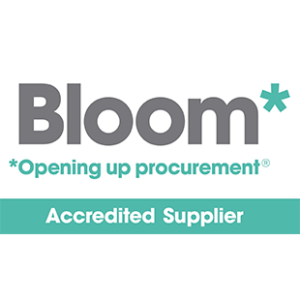

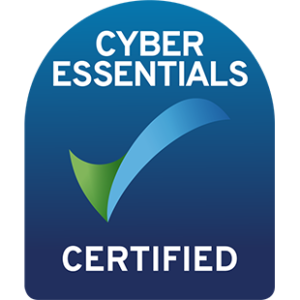

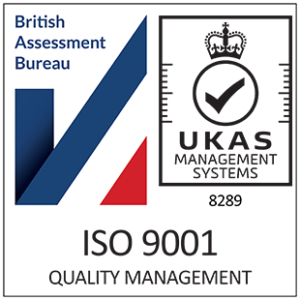
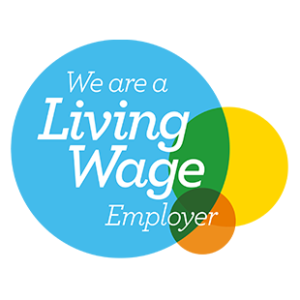
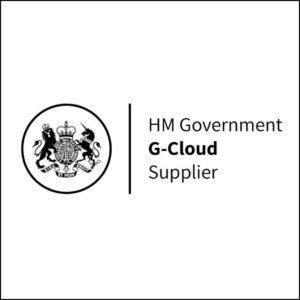
Company
Products
Responsibilities
© 2025. WorkL. All Rights Reserved.
